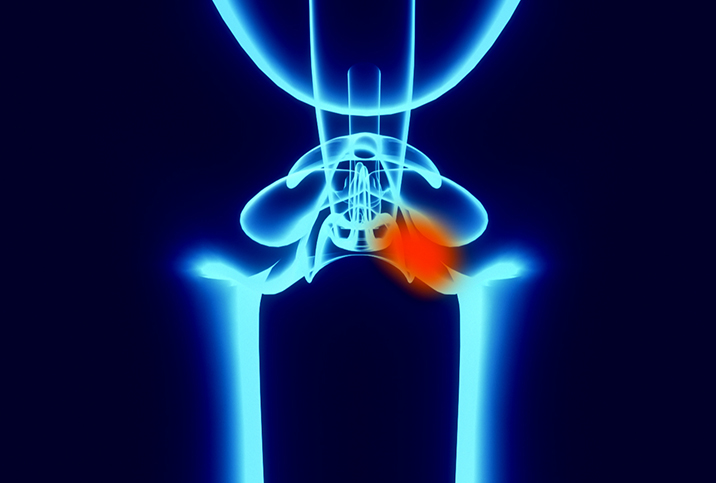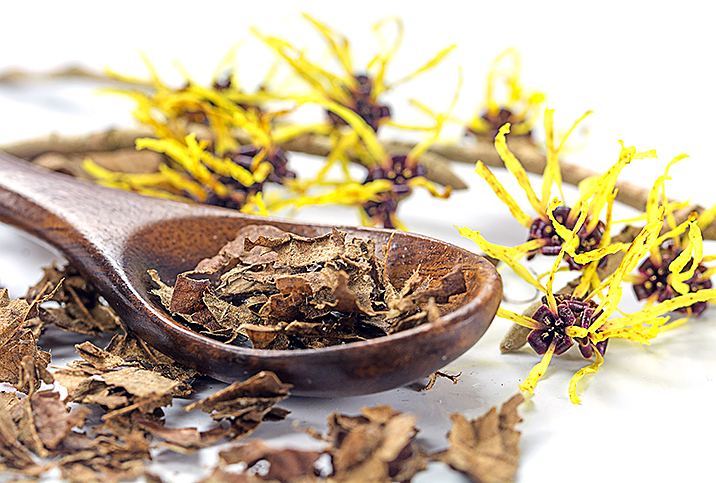Be Aware of the Symptoms of Vulvar Cancer

Vulvar cancer affects the external female genitalia, including the skin and glands around the vaginal opening, the labia minora and labia majora (the inner and outer "lips" surrounding the vagina), and the clitoris.
"Most commonly, this form of cancer mainly impacts the labia, but it can start in the clitoris or the Bartholin glands, which are just behind the labia and they secrete fluids for lubrication during sex," explained Sarah Welsh, a gynecologist and founder of the sexual wellness brand Hanx, based in the United Kingdom. "The cancer starts when cells in this area of the body grow abnormally and out of control."
The exact cause of vulvar cancer is unknown, but older women tend to be more at risk.
"More than half of cases are in women over 70 years old, and it's rare in women under the age of 50," Welsh said. "Women who have conditions including vulval intraepithelial neoplasia, human papillomavirus and vulval skin conditions, such as lichen sclerosus, are all at increased risk of developing cancer of the vulva."
Risk factors such as HIV, melanoma (skin cancer), other genital cancers and smoking also can increase the risk of vulvar cancer.
Symptoms of vulvar cancer
People with vulvar cancer tend to experience a few symptoms, but they're generally nonspecific, which means there isn't a particular cause.
"Symptoms can include a persistent vulval itch and pain or tenderness in the vulva," Welsh said.
As well as itchiness and pain, you might also notice that the appearance of your vulva has changed.
"Some women notice thicker skin in the vulva or raised patches of skin in the area, as well as lumps or wart-like growths," Welsh explained. "These can be red, white or pigmented darker in color. You may also notice an ulcer-like sore on the vulva. A mole on the vulva that is changing color or shape may also be a sign of vulvar cancer."
Another common symptom is vulval bleeding. If you still have periods, the bleeding occurs outside of your normal menstrual cycle and in between periods.
"The blood from the first couple of days of your period may look the same as the blood you see from vulval cancer bleeding, usually a fresh red color," Welsh said. "But as well as a different pattern, bleeding due to vulval cancer symptoms is likely to be associated with other symptoms, too, such as itching or burning in your genitals."
When to see a doctor
These symptoms could be related to a number of other conditions, so if you're experiencing any of them, it's a good idea to speak to your doctor to figure out what's causing the issues.
"Abnormal vaginal bleeding can be due to a number of different problems," Welsh explained. "For example, you may have a polyp or ectropion on your cervix—both benign—vaginal dryness, hormonal changes or another underlying health condition. It's important you see your doctor to assess what else could be going on here."
If you are postmenopausal and have any kind of vaginal bleeding, see your doctor because this is generally unusual, according to Welsh. However, if you have just started your periods, you're changing or starting hormonal contraception, or you are near menopause (perimenopause), then a change in bleeding pattern is probably normal.
"However, do speak with your doctor if you have any concerns, as they should be able to reassure you," she suggested.
Itching and abnormal discharge can also be caused by issues other than vulvar cancer, such as thrush and sexually transmitted infections (STIs).
"Again, it's important to see a health professional to review your symptoms and take any tests necessary to diagnose any infections or issues going on," Welsh explained. "Anything that doesn't feel right for you, or you're worried about. is enough to speak with your doctor about."
If you're looking for a new doctor—you've moved, your longtime physician retired, you just need a change—Giddy telehealth takes the difficulty out of the search. The easy-to-use online service provides access to hundreds of healthcare professionals who have expertise across the full scope of medical care. Many of them specialize in women's health and offer same-day video visits.


















